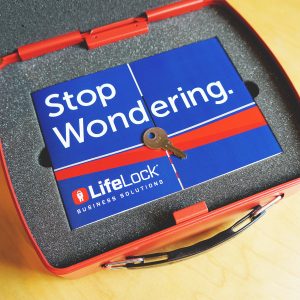 Computer security firm Symantec (NASDAQ:SYMC) announced a $2.3 billion bid to buy identity protection service LifeLock (NYSE:LOCK) on Monday. The offer for LifeLock values its shares at $24 apiece, 16 percent above Friday’s closing price. Symantec says that it will finance the deal with a combination of cash and $750 million of new debt.
Computer security firm Symantec (NASDAQ:SYMC) announced a $2.3 billion bid to buy identity protection service LifeLock (NYSE:LOCK) on Monday. The offer for LifeLock values its shares at $24 apiece, 16 percent above Friday’s closing price. Symantec says that it will finance the deal with a combination of cash and $750 million of new debt.
The deal is expected to close during the first calendar quarter of 2017. Citigroup and JPMorgan Chase are serving as co-lead financial advisers to Symantec’s board, according to the statement. LifeLock has been working with Goldman Sachs Group on the potential sale for several months. Private equity firms Permira, TPG and Evergreen Coast Capital, the new buyout arm of hedge fund Elliott Management, also posted bids for the company, according to people familiar with the matter.
LifeLock advertises identity protection services that help consumers combat identity theft, including monitoring new account openings and credit-related applications. The company also works with government agencies, merchants and creditors to reduce the impact of identity theft. Symantec CEO Greg Clark said in a statement that the combination of LifeLock and Symantec’s suite of antivirus and anti-spyware tools will help the company deliver “comprehensive” protection for consumers.
Symantec said the LifeLock deal is not expected to have a material impact on its financial results next year. The deal requires the approval of LifeLock shareholders. Lifelock currently has around 4.4 million members using its services.
Symantec has been focusing heavily on cybersecurity. The identity and data of consumers have become prime targets of cybercrime. The consumer digital safety market is estimated at $10 billion and 80 million consumers. Symantec’s security software often comes bundled with personal computers. As consumers use mobile devices more than traditional computers, its sales have been falling.
The LifeLock acquisition is not free of issues. In 2010, LifeLock reached a deal with the Federal Trade Commission to pay $12 million to settle claims it used false advertising for its identity protection services. LifeLock reached another deal with the FTC last year to pay $100 million for violating terms of a 2010 court order to stop deceptive advertising practices.
